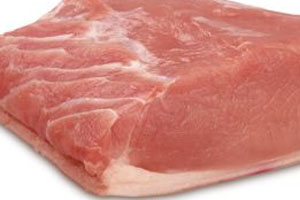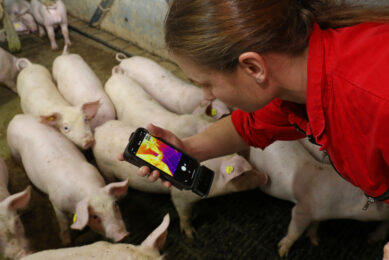What If? In vitro meat

What if we did not have live animals but still had delicious meat to eat? Wouldn’t that solve animal welfare and environmental problems? Wouldn’t everyone be much happier?
The topic of in vitro meat is interesting conversation among people in almost any venue. From social gatherings to class discussions, many people have strong views about artificial meat. Wait, maybe it is not artificial. They are real muscle cells after all. Or are they?
It has been called test tube meat, fake meat, even Frankenburger. Cell biologists and animal scientists have been growing muscles in culture since at least the 1960s. More than 20 years ago I posed the question to animal science students, what if instead of walking the pens of the pig barn or the cattle yard or the chicken barn, what if you walked the isles of a greenhouse-type structure full of beakers of muscle cells in cell culture medium? Some were aghast. Some were intrigued. Most said they thought it impossible. Ah. Now we have news that a long-practiced lab technique is moving commercial.
The reactions among animal science professionals and animal producers have been interesting to me. Many don’t want to talk about it – it induces a kind of fear. Mass cell cultured meat is an affront to the traditions and values of animal producers. The very lifestyle of producing animals is threatened here, they think. When I asked one muscle biologist a few years ago about this, he said: “I don’t know what it is, but something is fundamentally wrong with growing meat in the lab for human consumption.” When I asked, what is “wrong” with it, he couldn’t really say.
Consumers have a certain reaction to animal and food technology that is called the yuck factor. Many don’t want to know how animals are killed for meat, for example – it’s yucky. They don’t know what it is exactly about cell cultured meat they don’t like, but it is yucky. The distinguished muscle biologist has a parallel yuck factor about using his tried-and-true lab technique to make actual food. I am confident our muscle biologists could work out the technical problems. But they stay away. With the same vigor that reproductive biologists who clone animals stay away from cloning humans, muscle biologists stay away from manufacturing meat in the lab. What if that expertise were turned towards solving the technical issues? Get stem cells from living animals. Use serum-free media. Add a few fat cells for flavor. Improve the efficiency of conversion of sugar and plant protein into animal protein. They could do it. But it is too yucky for most.
Let’s be clear here. This has been brewing, so to speak, for some time. Muscle cells were cultured in the 1960s. Culture techniques were perfected over the past decades. The In Vitro Meat Consortium was formed in 2007. Animal rights groups are already touting animal-free fake meats.
In the USA, we don’t talk about pig farming, we talk about pork production. The trade organizations are the National Pork Producers Council and the National Pork Board. Pork, not pig. Food, not animals. One can now see that to produce pork does not require a live pig. The animals are not or will not (in the future) be needed. And the Pork Council can still promote pork. So they are good to go.
I am an animal scientist, not a pork scientist (not that there is anything wrong with being a pork scientist). I have a loyalty to and affection for the pig. No so much to the pork, for me (apart from liking to eat it). I can enjoy working with the pig in any setting, even if only in a zoo or on a farm park that shows how pigs used to be kept. If live-animal meat eating goes away as did other society issues (like slavery or women’s voting), I’ll be ok still learning about pig behavioral biology. I am not offended or afraid of this technology as an animal scientist. I’m not exactly sure why my colleagues are reluctant about this not-so-new technology.
Maybe it’s the animal scientist distaste for things fake. Fake leather, fake fur, now fake meat. Maybe it’s the animal scientist’s loyalty to our target clients, the animal producers. But, I tell them, they can help the guy with the greenhouse full of beakers growing meat, just as well. They are not amused. Actually they seem simultaneously offended and afraid.











